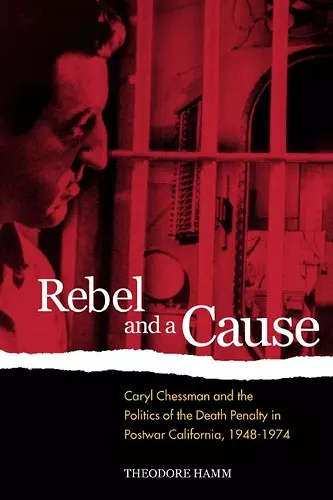Rebel and a Cause
Caryl Chessman and the Politics of the Death Penalty in Postwar California, 1948-1974
Format:Paperback
Publisher:University of California Press
Published:29th Oct '01
Should be back in stock very soon

Theodore Hamm uses the 1960 execution of Caryl Chessman as a lens for examining how politics and debates about criminal justice became a volatile mix that ignited postwar California. The effects of those years continue to be felt as the state's three-strikes law and expanding prison-construction program spark heated arguments over rehabilitation and punishment. Known as the Red Light Bandit, Chessman allegedly stalked lovers' lanes in Los Angeles. Eventually convicted of rape and kidnapping, he was sentenced to death in 1948. In prison he gained significant notoriety as a writer, beginning with his autobiographical Cell 2455 Death Row (1954). In the following years Chessman presented himself not only as an innocent man but also as one rehabilitated from his prior life of crime. He acquired an enthusiastic audience among leading criminologists, liberal intellectuals, and ordinary citizens, many of whom engaged in protests to halt Chessman's execution. Hamm analyzes how Chessman convinced thousands of Californians to support him, and why Governor Edmund G. (Pat) Brown, who opposed the death penalty, allowed the execution to go forward. He also demonstrates the intrinsic limits of the popular commitment to the rehabilitative ideal. Rebel and a Cause places the Chessman case in a broad cultural and historical context, relating it to histories of prison reform, the anti-death penalty movement, the popularization of psychology, and the successive rise and decline of the New Left and the more enduring rise of the New Right.
ISBN: 9780520224285
Dimensions: 229mm x 152mm x 15mm
Weight: 318g
220 pages